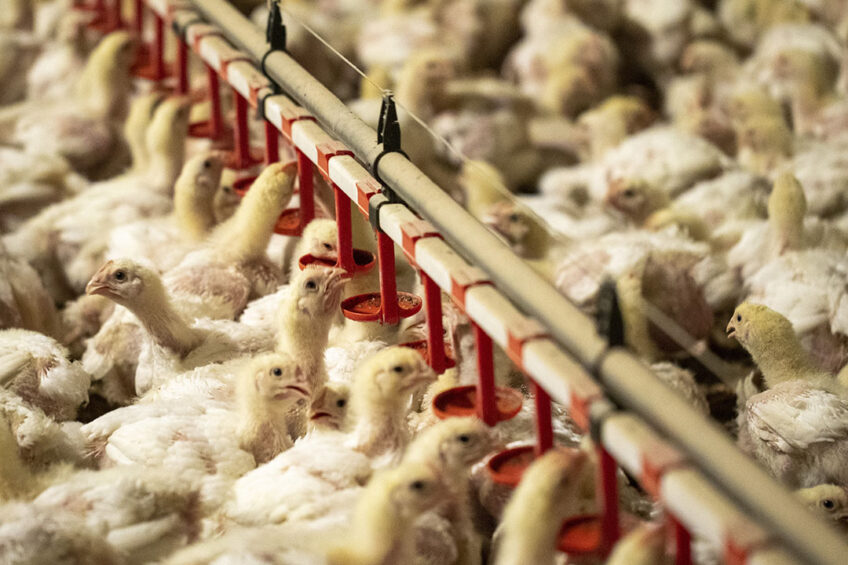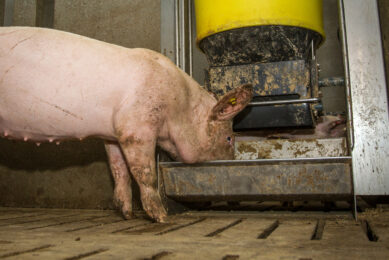Tips and tricks for feeding during heat stress

Poultry veterinarian Gerwin Bouwhuis gives tips and tricks on how to prevent heat stress in broilers with a proper feed regime, smart water line height and the right additives.
In order to prevent heat stress, it was common practice in the broiler sector to make birds fast during the hottest hours of the day. The rationale behind it; without feed intake, chicks do not burn any energy and so there is no internal heat production. However, poultry veterinarian Gerwin Bouwhuis of the Health Center for Poultry (GvP) in Emmen (NL) thinks that making chicks fast during heat stress isn’t the optimal solution.
Any form of stress in chicks is undesirable. Therefore, we rely on adjusting the feeding regime to combat heat stress.
Reducing feed intake and encourage drinking
Without completely turning the feeding regime upside down, it is also quite possible to reduce feed intake, according to Bouwhuis. “You can play with light intensity for example. Dim the lights to reduce feed intake and body activity, but add a little more light from time to time to stimulate the chicks to drink water. Lower water absorption is undesirable,” says Bouwhuis. According to the poultry veterinarian, it is advisable to temporarily lower the water lines to encourage the chicks to drink. By slightly raising the feed lines on the other hand, it is possible to temporarily decrease feed intake. “This way you may limit the feed intake, but you prevent the chicks from fasting,” says Bouwhuis.
Danger of high pH
By nature, broilers can’t loose heat easily. They don’t have the ability to sweat and have to pant instead to get rid of heat. “Chicks that suffer from heat stress spread their wings and put up their feathers. They pant and produce thinner manure,” says Bouwhuis. As a result of increased respiration, the chicks emits extra CO2 which changes the pH of the blood. This change in pH is detrimental to the heart muscle and legs. According to Bouwhuis, more health problems can arise as a result of heat stress. “Stressed chicks want to fight or flee, the so called “fight-flight” response. The body then enters a state in which it is primed for fight or flee. The muscles get more blood, while less blood is circulated through in the intestinal tract. This can lead to the so-called “leaky gut syndrome.”
Additives that prevent heat stress
There are several additives on the market that have a beneficial effect in the prevention of heat stress. Several active substances must be added to the drinking water to work properly, Bouwhuis advises. The ThermoFit supplement contains various substances that counteract the effects of heat stress and is also soluble in water.
Bouwhuis: “Thermofit contains electrolytes that prevent dehydration and bicarbonate that stabilises the pH of the blood and helps against osteoporosis. Antioxidants capture waste products and prevent overloading of the respiratory muscles. The addition of magnesium ensures that the heart muscle does not cramp.” The dosage of Thermofit is 1 to 2 kg per 1,000 litres of drinking water on summer days. The supplement is used during the acute phase, from 7am to 7pm.
According to Bouwhuis, it is difficult to predict exactly when heat stress will occur in broilers. This depends on several factors, such as the height of the house, the actual humidity and the air speed, but the feed composition and the growth rate of the chicks also play a role. “Broilers can easily cope with changing conditions for a short time. When it is too hot for a longer period of time, the chicks start to suffer.”
Author:
Bouke Poelsma






